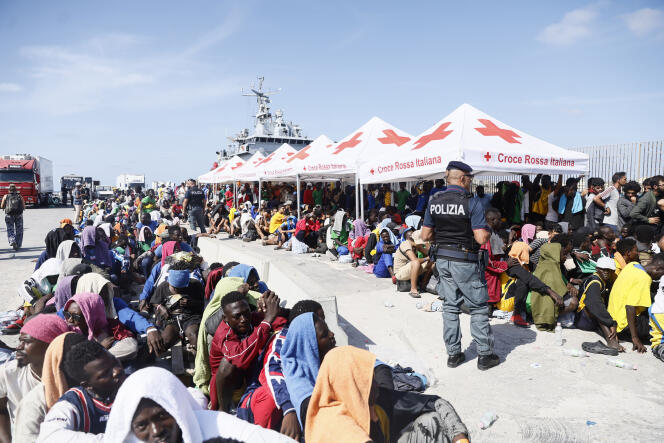Human Rights
EU Approves Overhaul of Migration and Asylum Policies Ahead of Elections

With EU elections looming and the rise of far-right parties anticipated, the 27-nation bloc is set to give final approval to a significant overhaul of its migration and asylum policies after nearly a decade of contentious debates. The landmark legislative package, scheduled for approval on Tuesday, reflects years of negotiations driven by a surge in irregular migrants in 2015, many fleeing conflict in Syria and Afghanistan.
The migration and asylum pact, a result of arduous negotiations, has drawn criticism from both migrant rights organizations and nationalist governments. It aims to toughen the EU’s border procedures and ensure all member states share responsibility for arrivals.
EU ministers in Brussels are expected to approve the reforms following the European Parliament’s endorsement last month. The measures, slated to take effect in 2026, include the establishment of new border centers to process asylum requests and expedite deportations of inadmissible migrants.
The pact also mandates EU countries to accept asylum-seekers from frontline states like Italy and Greece, or provide financial and other resources to these nations if they refuse. Hungarian Prime Minister Viktor Orban has criticized this system, which only required a weighted majority of EU countries to pass.
In parallel, the EU is intensifying its agreements with transit and origin countries to reduce arrivals. Recent deals with Tunisia, Mauritania, and Egypt highlight this approach. Italy has also signed an accord with Albania to process migrants rescued in Italian waters.
Additionally, a group led by Denmark and the Czech Republic is preparing to advocate for the transfer of migrants rescued at sea to countries outside the EU. However, the feasibility and legality of such initiatives remain uncertain.
As the EU finalizes these sweeping reforms, questions linger about the practicality and implications of potential outsourcing deals with third countries. The next EU executive, to be in office after the upcoming elections, will likely address these challenges.
